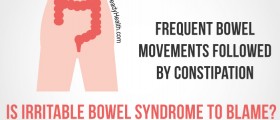
IBS
IBS or Irritable Bowel Syndrome is a condition marked by the gastrointestinal malfunctioning, and it is also known under the names spastic colon, irritable colon and nervous stomach. IBS is not very serious and life-threatening disease, but it has the negative effects on the person’s lifestyle. There is no cure for irritable bowel syndrome (IBS), but certain medications to reduce the symptoms exist. The patient must visit the doctor and with him, after the various tests, decide which medication best suits him, because each medication has its side effects. Characteristic warning signs for this disorder are pain in the abdomen, constipation, diarrhea, abdominal fullness, the frequency of stool and bloating, as well as nausea, vomiting, fever, muscle pain, and fatigue.
Best supplements for IBS
There are five key strategies for controlling Irritable Bowel Syndrome. Apart from proper diet, stress management, alternative therapies and prescription medications, supplements for the dietary management of irritable bowel syndrome are also very effective and beneficial in regulating and stylizing digestion. These supplements are completely healthy, harmless and inexpensive, which is why there is no reason not to try them. The most helpful of all the supplements are soluble fiber supplements and one of them is acacia senegal.
Fennel and peppermint are rich in magnesium and calcium and therefore, these two herbs are also recommended in treating gastrointestinal disorder. The muscle function, such as muscle contraction or relaxation, is best regulated with magnesium and calcium. In IBS, magnesium is used as a laxative, while calcium is good for constipation, which means that people with diarrhea should take calcium, while those with constipation should use magnesium. The both supplements should be taken in with food. Magnesium is more easily absorbed than calcium, so the amounts of taken calcium should be doubled in relation to the amounts of magnesium.
Probiotics refer to the microorganisms. They have healthy benefits if they are used in proper amounts. For example, lactic acid bacteria and bifidobacteria are two types of microbes that are most frequently used for the treatment of IBS, because they improve intestinal microbial balance by inhibiting pathogens and toxins. Probitoics can be found in soy yogurt and fermented foods, but also in the form of pills. Usually, they are used after prebiotics that stimulates the growth of probiotics. To reduce the symptoms of IBS, certain digestive enzymes may be very effective, especially for elderly people. A digestive enzyme called Beano, is the most helpful when certain gassy foods are taken, such as beans, lentils and many vegetables.








_f_280x120.jpg)








Your thoughts on this
Loading...